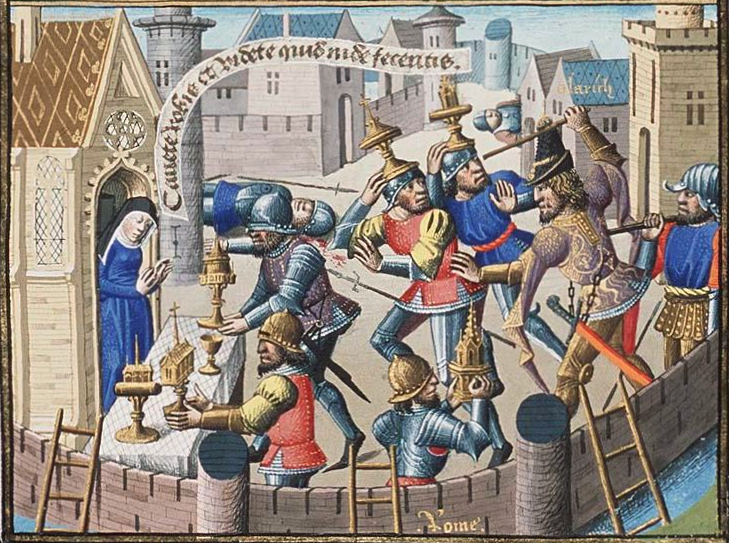The relationship between
Propertius and his mistress Cynthia is now definitely over. In his final poem
describing their relationship, Propertius is spitting out his frustration, sick
of her wiles during the five years of their relationship. He hopes she will
grow old as an ugly old woman, spending her years in loneliness and regretting
all the wrong she has done to him.
Let’s hope this poem had
its therapeutic effect and well, maybe it is still useful for all those poor
men suffering the same agony.
Propertius 3, 25
Risus eram positis inter
convivia mensis,
et de me poterat quilibet esse loquax.
quinque tibi potui servire
fideliter annos:
ungue meam morso saepe querere fidem.
nil moveor lacrimis: ista
sum captus ab arte;
semper ab insidiis, Cynthia, flere soles.
flebo ego discedens, sed
fletum iniuria vincit:
tu bene conveniens non sinis ire iugum.
limina iam nostris valeant lacrimantia verbis,
nec tamen irata ianua fracta
manu.
at te celatis aetas gravis urgeat annis,
et veniat formae ruga sinistra
tuae!
vellere tum cupias albos a stirpe capillos,
iam speculo rugas increpitante
tibi,
exclusa inque vicem fastus patiare superbos,
et quae fecisti facta queraris
anus!
has tibi fatalis cecinit
mea pagina diras:
eventum formae disce timere tuae!
risus risus
(m.): object of laughter (cf. French risé)
convivium:
company at a table, guests
positis mensis:
at the arranged tables
de me loquax:
talkative/gossiping about me
quinque annos:
the first book of elegies must have been published five years earlier.
querere = quereris: with vivid detail Propertius
tells Cynthia that she will deeply bewail (queror
questus) her misbehaviour, biting her nails (ungue morso).
ab insidiis:
Cynthia used to weep to find his weak spot, but Propertius’ weeping will be
genuine.
bene conveniens:
`coming well together’ is the expression for a happy marriage.
iugum: yoke
as metaphor for a couple in love
limina valeant:
let the threshold be strong, i.e. goodbye to the threshold
lacrimantia:
wet by tears
irata manu:
whatever Cynthia did to Propertius, he could not become angry and ruin her
door. The situation refers to a paraclausithyron,
a theme in Roman elegiac poetry, in which a lover is in vain lamenting outside
the door of his mistress.
celatis annis:
with `hidden years’ years spent in loneliness are meant. With aetas gravis, not with urgeat.
forma:
beauty
ruga:
wrinkle
vello (-ere): to tear out
stirps stirpis
(f.): root
speculo rugas increpitante: when the mirror is scolding your wrinkles
exclusa:
i.e. without lovers
in vicem: in
your turn
fastus fastus
(m.): haughtiness, disdain
patiare = patiaris
anus anus
(f.): an old woman
fatalis diras: fatal portents (dirae dirarum)
cano cecini : to sing, prophesy
Translation by A.S. Klyne
I was laughed at among the
guests seated for the banquet, and whoever wished was able to gossip of me. I
managed to serve you faithfully for five years: you’ll often grieve for my
loyalty with bitten nails.
Tears have no effect on
me: I was ensnared by those wiles: Cynthia you only ever wept with guile. I
will weep, in departing, but insult overcomes tears: you would not allow the
yoke to move in harmony.
Now goodbye to the
threshold weeping at my words: to the entrance never hurt by my hand in anger.
But let age’s weight burden you with secret years and luckless lines furrow
your features! May you long then to tear out your white hairs by their roots,
ah, when the mirror rebukes you with your wrinkles, and may you in turn,
rejected, suffer proud arrogance, and, changed to an old woman, regret your
deeds!
